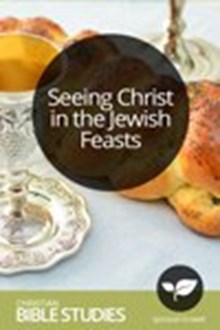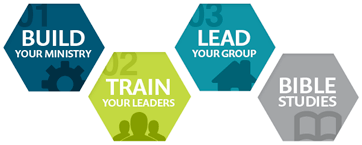Many of us do not understand the history and meaning of Jewish holidays, even though several of the stories are told in our Old Testament. What are the various Feast Days, and what does each represent? How have Jewish people celebrated them over the ages? Are the traditions carry any weight for Christians today?
This carefully-crafted course includes six sessions about the most holy Feast Days in the Judaism. Not only will you and your small group or Sunday class learn about the historic traditions of the Jewish faith, but our editors have drawn from New Testament passages to show you how Jesus is revealed and revered in these holidays.
Session One
Passover (Pesakh): Exalting God our Deliverer
The Passover is significant to us all.
Leviticus 23:4–8
For many Christians, Passover brings to mind Sunday school stories of the Exodus, but Jews are exhorted to consider themselves as a part of the very generation which was set free from bondage.
Session Two
Pentecost (Shavu'ot): The Feast of Weeks
This feast is a harvest thanksgiving.
Leviticus 23:9–21
Traditional Judaism holds that the Torah was given on the day of Pentecost. In Orthodox Jewish practice today, Pentecost is unquestioningly celebrated as the day of "the giving of the Law."
Session Three
Rosh HaShanah: The Feast of Trumpets
This feast is a memorial and a blessing.
Leviticus 23:23–25
Although the Bible says very little about this particular feast day, it is now among the most significant holy days in Judaism. At some point in history, the Feast of Trumpets became the day on which the Jewish New Year is celebrated.
Session Four
Yom Kippur: The Day of Atonement
This is a day of afflicting our souls.
Leviticus 23:26–32
Perhaps the most important day of the Jewish year, this is a day for repentance and forgiveness. Compare Leviticus to James and learn how this "Sabbath of Sabbaths" is meaningful for Christians today. Includes traditional Al-Khet liturgical prayer.
Session Five
The Feast of Tabernacles (Sukkot): The Latter Harvest
This feast emphasizes thanksgiving, celebration, and a temporary dwelling.
Leviticus 23:33–43
The Feast of Tabernacles (Sukkot) is the last of the three pilgrimage festivals, the holidays on which the Jews were commanded to go up to Jerusalem. It commemorates the 40 years of wandering in the desert and marks the final harvest of the agricultural year.
Session Six
Hanukkah: Celebrating the Eternal Light
Jesus is the light of the world.
John 10:22–42; Apocryphal Books: 1 Maccabees 2:1–48; 2 Maccabees 10:1–8
Until recently, Hanukkah was given no more importance than any of the other minor holidays which are not found in the Bible. Even today, many Hanukkah traditions are seen as somewhat questionable by numerous Jewish scholars.
Total number of pages—87





